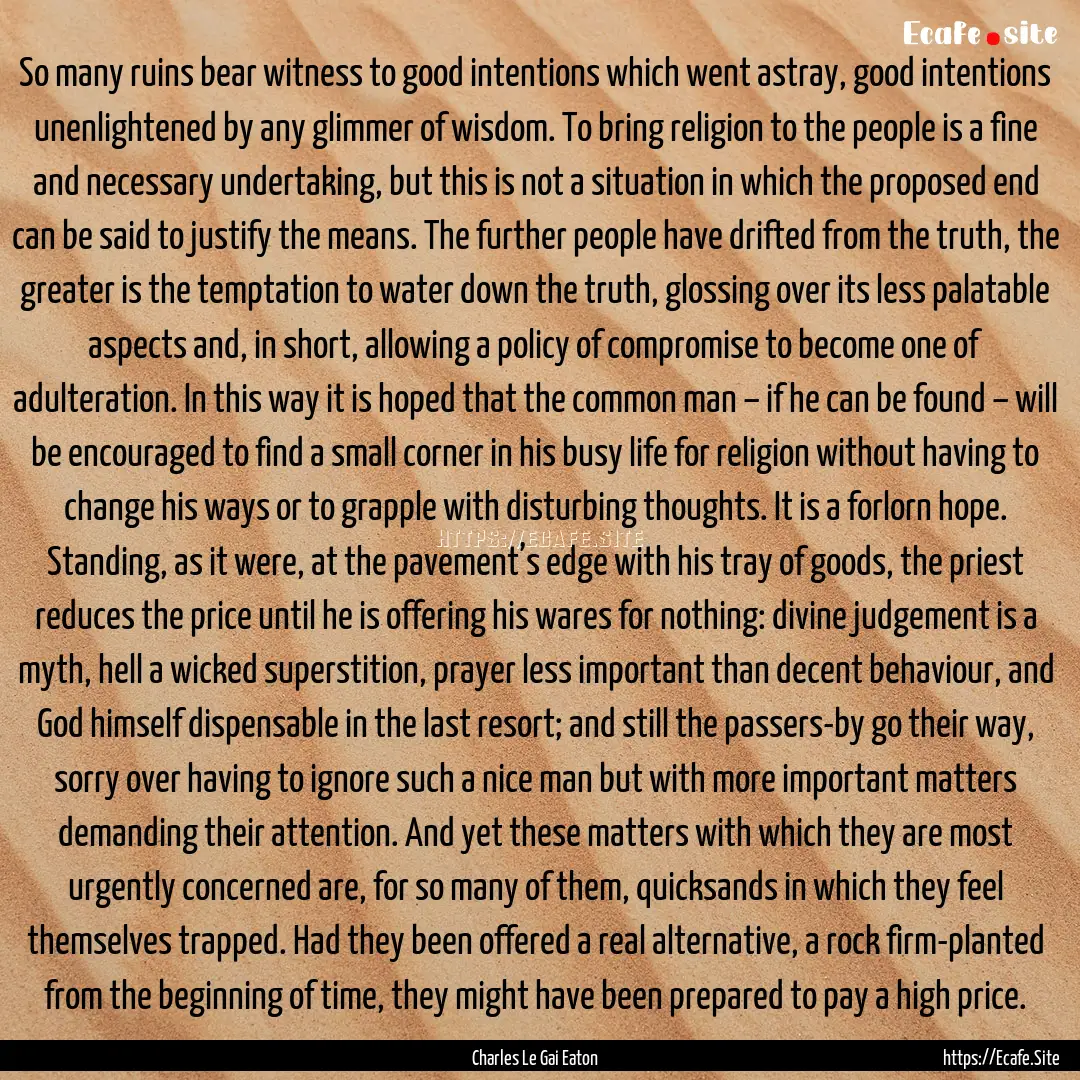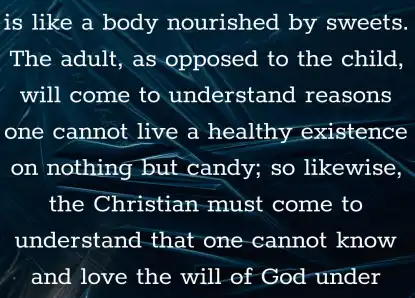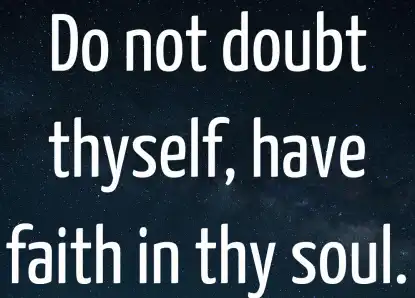
Report, if you have a problem with this page“ So many ruins bear witness to good intentions which went astray, good intentions unenlightened by any glimmer of wisdom. To bring religion to the people is a fine and necessary undertaking, but this is not a situation in which the proposed end can be said to justify the means. The further people have drifted from the truth, the greater is the temptation to water down the truth, glossing over its less palatable aspects and, in short, allowing a policy of compromise to become one of adulteration. In this way it is hoped that the common man – if he can be found – will be encouraged to find a small corner in his busy life for religion without having to change his ways or to grapple with disturbing thoughts. It is a forlorn hope. Standing, as it were, at the pavement’s edge with his tray of goods, the priest reduces the price until he is offering his wares for nothing: divine judgement is a myth, hell a wicked superstition, prayer less important than decent behaviour, and God himself dispensable in the last resort; and still the passers-by go their way, sorry over having to ignore such a nice man but with more important matters demanding their attention. And yet these matters with which they are most urgently concerned are, for so many of them, quicksands in which they feel themselves trapped. Had they been offered a real alternative, a rock firm-planted from the beginning of time, they might have been prepared to pay a high price. ”

Charles Le Gai Eaton
From : King of the Castle: Choice and Responsibility in the Modern World



